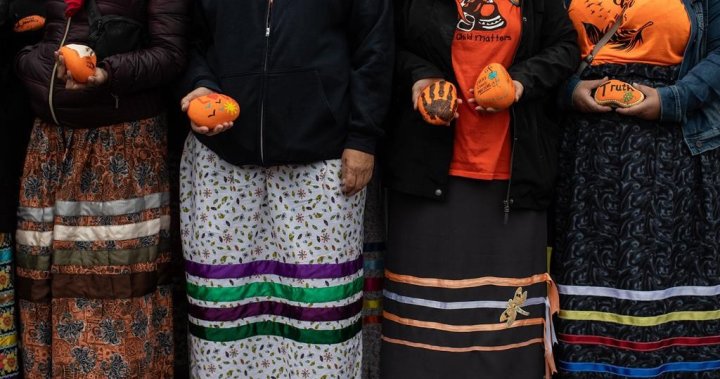The legal battle led by residential school survivor Sphenia Jones against the Catholic Church is a last resort for her lawyer, Maxime Faille. The goal of the proposed class-action defamation lawsuit is not focused on money, but on understanding, healing, and reconciliation. Jones, an 80-year-old Haida elder who attended the Edmonton Indian Residential School, filed the lawsuit alleging that Rev. Marcin Mironiuk made defamatory comments during a 2021 sermon by calling evidence of unmarked graves “lies” and “manipulation.” The lawsuit claims that such comments were intended to discredit residential school survivors who have spoken out about the deaths associated with these institutions, including the discovery of gravesites at the Kamloops Indian Residential School.
The lawsuit targets Mironiuk, the Catholic Archdiocese of Edmonton, and the Oblate Fathers of Assumption Province as defendants. While the Edmonton Archdiocese declined to comment on the matter, stating it is before the courts, the Oblate Fathers released a statement contesting the lawsuit. They claim that Mironiuk did not intend to cause harm and has pledged to further advance truth and reconciliation efforts with Indigenous Canadians. However, Faille, the lawyer representing Jones, argues that the rise in residential school denialism and the priest’s hurtful comments have had a significant impact on residential school survivors who are sharing their truths about their experiences at these institutions.
Despite the challenges of a group defamation lawsuit, a judge in Calgary ruled that the case can move forward. Law professor Tony Paisana explained that although a class action defamation lawsuit is unusual because the individuals involved may not know each other, the law supports this type of legal action. In defamation cases, individuals can be sued for making damaging statements even if they do not have a personal relationship with the affected parties. As the lawsuit progresses, the next step is to seek certification in a hearing, a process that could take up to a year.
The legal battle initiated by Sphenia Jones and her lawyer against the Catholic Church represents a significant step in seeking justice and accountability for the harms inflicted on residential school survivors. Jones, who has been vocal about her experiences at the residential school, aims to facilitate healing and reconciliation through the lawsuit, rather than focusing solely on financial compensation. The allegations that Rev. Marcin Mironiuk made defamatory comments during a sermon further highlight the challenges faced by residential school survivors in sharing their truths and seeking recognition for their experiences.
The lawsuit, which names Mironiuk, the Edmonton Archdiocese, and the Oblate Fathers as defendants, seeks to address the harm caused by denialism and hurtful comments directed at residential school survivors. Despite the opposing statements issued by the defendants, the legal process has gained traction with a recent ruling allowing the case to move forward. As the lawsuit progresses, the focus remains on obtaining certification for the class action and continuing the fight for justice on behalf of all residential school survivors affected by defamatory remarks and denial of their experiences. This legal battle serves as a critical opportunity to challenge harmful narratives and seek accountability for the atrocities committed within the residential school system.


